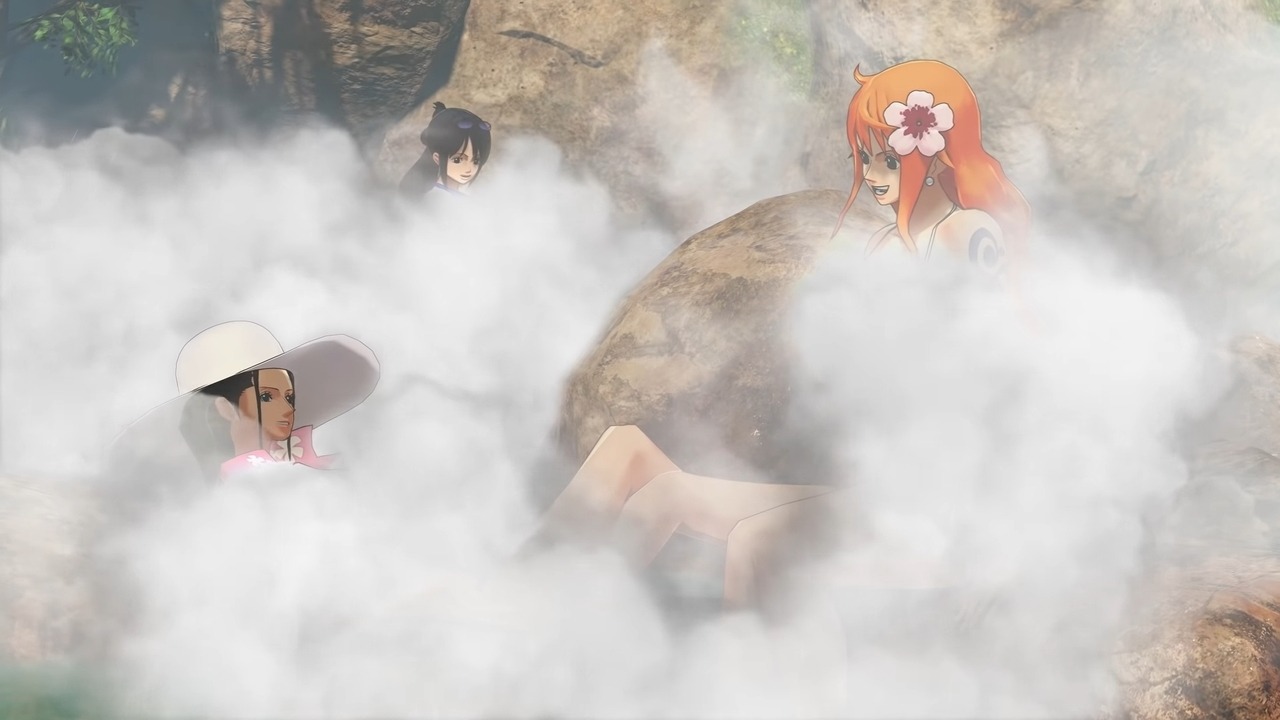On localizing content that feels out-of-place or problematic in a different region:
Sam Mullen: I would say that's not an uncommon thing that happens and it's one of those really tricky things for us because, if we're too heavy-handed - like, let's say we do choose to do nothing. Our staff is really tuned into that kind of sentiment and all the stuff that goes around it, something we definitely think about a lot and talk about a lot. We look at it, we constantly engage in Japanese content and we understand that the things that different cultures react to is just different and we're very hyper-sensitive about that. We do nothing, though, and it's like walking into a wall and going "Well, people aren't going to like that."
On the other hand, if we're too heavy-handed, we get dinged with this whole censorship kind of thing. There's a certain consistent base that will be like "Hey you should just tell us what the–you know, don't mess with the content." And that's if we're really heavy-handed and aren't sensitive to the actual true localization process, which is what we are trying to keep it to what it originally was, we're trying not to change it too much. But there is a space in-between where we can kind of like "slight touch" and make it so certain things don't pop out quite as hard.
It goes back to, like I was saying on the [PAX West] panel, our intention is to have users react emotionally in the same way that the original creator intended. So if the creator was not intending the user to have some kind of visceral reaction to this content, but if we leave it as-is and they'll have a reaction to it, well then we're kinda not really doing our job. That's the whole thing, find this perfect space in-between where all parties are being addressed. Now, there are some extreme cases where you can't make everyone happy and at the end of the day you have to just say this is where it's going to fall. It's a little bit of hoping that people understand, but that's not really an excuse that can be made, anyway. We do have conversations with our dev teams, we do make cases and we do have open conversations, but sometimes creators have a hard line on something.
Andrew Davis: But often development can be a global collaborative process, like developers in Japan will listen to our feedback and sometimes they will say "We're in the middle of design for this, do you think this will be something that could be appropriate globally?" And sometimes we'll come back with our comments and say "Well, this is how this will be seen in this culture," whether it's American culture or whatever. Like I've had to say, "In Germany, you have to understand this would be very sensitive." So we can go back to the dev teams and sometimes we do have the opportunity to have a dialogue and it's always interesting.
Mullen: I remember recently with [Yakuza] Kiwami this time last year, there's a character, one of the two hostesses you can find of have a relationship with. One of them identifies as a lesbian. I remember having a lot of discussion with Scott [Strichart, Yakuza localization producer] about how to approach that storyline. The way her story results in Japanese, if translated straight, comes off as that like "Well you just never met a real man" kind of feel to it. But I don't think that's the intention they were going for, that's just the way it comes across in English. So I do remember there being this light feeling of needing to change the language, because that's not the point here.
That entire story arc is actually really interesting, because it gives people an interaction with a type of character that isn't represented much elsewhere, but there are definitely some complicated things here. I would say that the Ryu Ga Gotoku [Yakuza] Studio guys are actually currently very hyper-aware of that. Some of the stuff that we haven't announced or confirmed for the west, like the remasters of 3, 4, and 5, in the Asian and Japanese markets, they did make some content adjustments for that. [Yakuza producer] Nagoshi-san himself has spoken about how back in 2009, attitudes to certain things were different back then. They recognize it and are making adjustments to the content for the remasters.
They are listening and it's kind of our job on the localization side to make sure that all the overseas talk that is in our regions and our languages is being communicated. That's part of the localization job, it's not just text.







